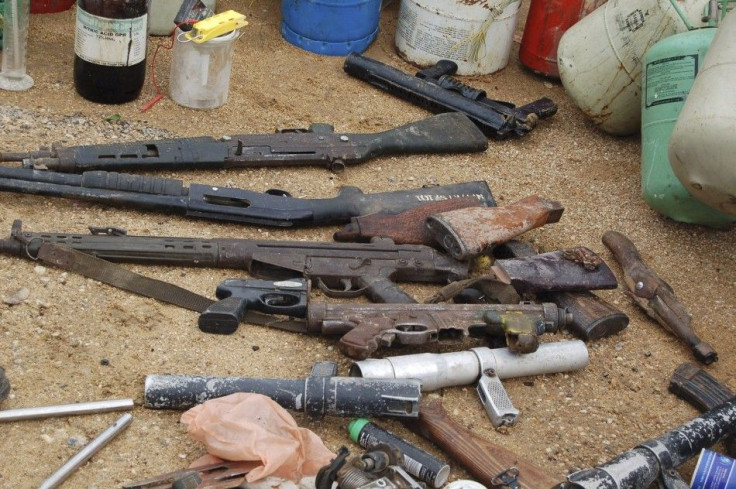Nigeria Becomes The First African Country To Ratify International Arms Trade Treaty

Nigeria has become the first African country to ratify the Arms Trade Treaty, or ATT, an international agreement aimed at stopping the illegal shipments of deadly weapons.
The ATT lays out an overarching set of rules to govern the import and export of a broad range of weapons, from small firearms to warships to helicopters. It aims to promote transparency and oversight for all weapons' exchanges around the world, with the ultimate goal of "contributing to international and regional peace, security and stability."
Nigeria is particularly vulnerable to the scourge of illicit arms. It suffers high-inequality rates due to the government's failure to translate oil revenues -- which have swelled the national gross domestic product to $235 billion -- into development for a poverty-stricken population. The West African country had suffered a wave of kidnappings, attacks and oil thefts over the past decade. A militant group called Boko Haram, which seeks to establish Islamic law in northern Nigeria, has killed more than 1,000 people since it accelerated military activities three years ago. With these concerns in mind, officials in the capital city of Abuja were eager to endorse the ATT.
"This landmark event represents our deep commitment to a treaty which establishes common international standards for the import, export and transfer of conventional arms," Minister of Foreign Affairs Olugbenga Ashiru told Nigeria's Premium Times.
A few other African nation's representatives have put pen to paper for a formal signature, but none have taken the next step to ratify the document, which requires stronger legislative approval at home.
On April 2, the U.N. General Assembly approved the ATT, with 154 of 193 of the body's members in favor. Iran, North Korea and Syria voted no; others, including Russia, Cuba, Egypt and Saudi Arabia abstained.
The treaty isn't in force yet -- that will only happen after the 50 states ratify the agreement. Even the draft of the ATT has been decades in the making, and its easy passage this year in the UN belies the strength of the opposition around the world.
Critics argue that the agreement impinges on national sovereignty, and many of the countries that approved the treaty in the General Assembly have yet to even sign it -- including the United States, which is the world's largest arms exporter.
Political hang-ups, including criticism from gun lobbying groups such as the National Rifle Association, have prevented Washington from following through on this symbolic first step; however, U.S. President Barack Obama has spoken positively of the treaty, and Secretary of State John Kerry said in a statement this July that "we look forward to signing it as soon as the process of conforming the official translations is completed satisfactorily."
Nigeria is the fourth country to ratify the ATT, behind Iceland, Guyana, and the twin-island country of Antigua and Barbuda. The treaty has a long way to go before it achieves the 50 states' ratification necessary to become binding, but proponents hope that more countries will be inspired to follow Nigeria's lead.
"We remain resolute and unyielding in our efforts to uphold the principle of ATT and, in particular, ensure that small arms and light weapons are appropriately transferred and access denied to terrorist groups, pirates, bandits and the like," Ashiru said.
© Copyright IBTimes 2024. All rights reserved.





















